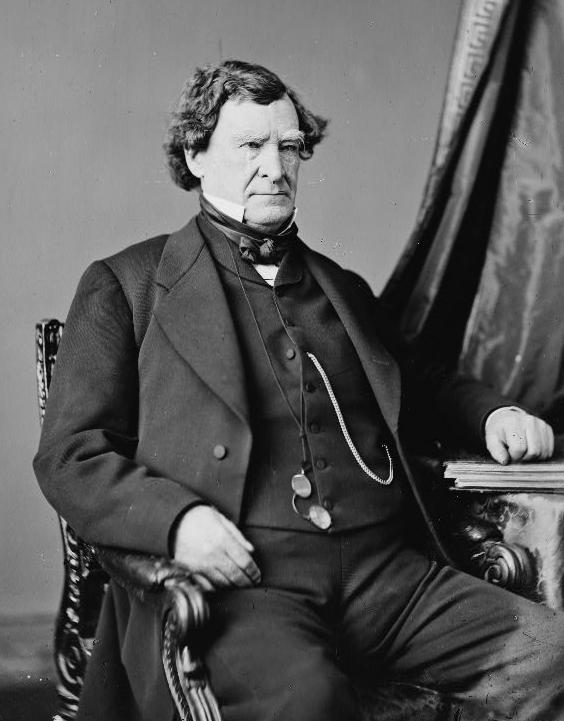- Jeremiah S. Black
Infobox US Cabinet official
name=Jeremiah Sullivan Black

order=25th
title=United States Attorney General
term_start=March 6 ,1857
term_end=December 16 ,1860
predecessor=Caleb Cushing
successor=Edwin M. Stanton
order2=23rd
title2=United States Secretary of State
term_start2=December 17 ,1860
term_end2=March 5 ,1861
predecessor2=Lewis Cass
successor2=William H. Seward
order3=6th
title3=United States Supreme Court Reporter of Decisions
term_start3=1861
term_end3=1862
predecessor3=Benjamin Chew Howard
successor3=John William Wallace
birth_date=birth date|1810|1|10|mf=y
birth_place=Stony Creek, Pennsylvania ,
United States
death_date=death date and age|1883|08|19|1810|01|10
death_place=York, Pennsylvania ,United States
party=Democratic
spouse=
profession=Lawyer ,Politician Jeremiah Sullivan Black (
January 10 ,1810 –August 19 ,1883 ) was an American statesman and lawyer. He was the son of Representative Henry Black, and the father of writer and Pennsylvania Lt. GovernorChauncey Black .He was largely self-educated, and before he was of age was admitted to the
Pennsylvania bar. He gradually became one of the leading American lawyers, and from 1851 to 1857 was a member of theSupreme Court of Pennsylvania , serving asChief Justice from 1851 to 1854. In 1857 he entered PresidentJames Buchanan 's cabinet asAttorney General of the United States . In this capacity he successfully contested the validity of the California land claims to about 19,000 square miles (49,000 km²) of land, fraudulently alleged to have been granted to land-grabbers and others by the Mexican government prior to the close of the Mexican War. FromDecember 17 ,1860 toMarch 4 ,1861 he wasU.S. Secretary of State . Perhaps the most influential of President Buchanan's official advisers, he denied theconstitutionality ofsecession , and urged thatFort Sumter be properly reinforced and defended. However, he also argued that a state could not be legally coerced by the federal government.President
James Buchanan nominated him for a seat on the Supreme Court, but his nomination was defeated in the Senate by a single vote onFebruary 21 ,1861 . He became reporter of decisions to theSupreme Court of the United States in 1861, but after publishing the reports for the years 1861 and 1862 he resigned, and devoted himself almost exclusively to hisprivate practice , appearing in such important cases before the Supreme Court as the one known asEx Parte Milligan , in which he ably defended the right oftrial by jury ,Ex parte McCardle , United States v. Blyew, 80 U.S. 581 (1871), et al.After the
American Civil War he vigorously opposed the Congressional plan of Reconstruction and drafted PresidentAndrew Johnson 's messageveto ing theReconstruction Act of theMarch 2 ,1867 . Black was also, for a short time,counsel for President Johnson in his trial on his Article ofImpeachment before theUnited States Senate , and forWilliam W. Belknap ,United States Secretary of War from 1869 to 1876, who in 1876 was impeached on a charge of corruption; he also representedSamuel J. Tilden during the contest for the presidency between Tilden andRutherford B. Hayes . He died at "Brockie",York, Pennsylvania , in 1883 at the age of 73.Further reading
* Black, C. F., "Essays and Speeches of Jeremiah S. Black, with a Biographical Sketch", New York: 1885.
----
*
Wikimedia Foundation. 2010.
